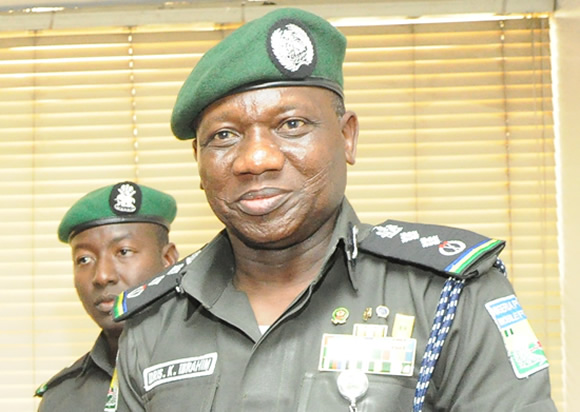
Even though no society can be said to be free of certain bad elements and security challenges that may be peculiar to it, depending on the level of overall development of such a society, the ones bothering us in Nigeria seem to be self-inflicted through well-organised criminal or ethnic gangs that seem to defy solutions. They seem to defy solutions because in the last two weeks or so, President Muhammadu Buhari has taken it upon himself to personally visit the hot spots in Taraba, Plateau and Benue states with a view to holding peace parleys with all the stakeholders on the ground.
But despite these presidential peace moves and visits, as of Monday, March 12, 2018, additional 25 people had been killed in Hundu village, Bassa LGA of Plateau State, according to media reports. The attacks took place less than two weeks after Mr. President’s visits to Taraba and Plateau states which the main opposition party, the Peoples Democratic Party, tagged another form of political rallies instead of condolence visits.
Much earlier, the media had reported other orgies of violence that took place in Benue, Plateau and Borno states where 30 people were reportedly killed in the attacks. Narrating these gory incidents, the DAILY SUN edition of Wednesday, March 7, 2018, page 6 opened its lead story for the day with the following paragraphs:
“It is another season of wailing and weeping in Benue, Plateau and Borno states as three separate attacks by suspected herdsmen and Boko Haram insurgents sent at least 30 persons to their untimely graves.
“Worse hit is Benue where 24 people including children, women and the aged were killed in Omusu — Edumoga, Okpokuru Local Government Area. The incident came barely a month after the remains of 73 persons killed in a midnight bloody attack by suspected Fulani herdsmen in Gume and Logo Local Government Areas were given a mass burial on a site at the Industrial Layout along Naka Road in the state’s capital. Those killed in the latest mayhem included Eric Attah and his wife, a septuagenarian; Pa Innocent Itodo, an 11-year-old schoolgirl and another 60-year-old woman, Mrs. Catherin Abah, among others. Godwin Igoche was also said to have lost his wife and two children while another lost his two wives…’’
According to Channels TV reports of Tuesday March 13, 2018, about 1.7 million Nigerians have lost their homes since these mindless conflicts and madness began especially in the North-East and the Middle Belt parts of the country. It should be recalled that the concerned security issues began as localised skirmishes and fracas but due to the action and inaction of our politicians and their inability to act divisively with a view to nipping these security challenges in the bud, they allowed these issues to fester on until they become a national phenomenon occupying the unenviable first and second positions on the list of issues threatening our corporate existence as an entity and thus constituting serious headache to our security agents.
Some of these decisive actions may not be taken due to certain vested interests on the part of our political leaders and so some of these challenges may be arising from matters that may be related to bad governance.
The nation may not be lacking in a well-organised security network to secure the lives and the property of the residents of this nation, but certain policies and pronouncements of some government officials may indirectly be aiding and abetting some criminal activities in the country. For an instance, according to another news report credited to the Channels Television, the Inspector General of Police, Ibrahim Idris, was reported as saying that the police might not arrest suspected herdsmen that are being accused of murder and wilful damage of property across the country, until certain areas are designated as the grazing reserves. And within two weeks of these alleged pronouncements, no fewer than two attacks were linked to these suspected herdsmen. Although the police later abandoned this hard line posture of their unpreparedness to arrest and prosecute suspected killer herdsmen, the damage has already been done.
As a way of getting to the root of these identified security challenges confronting us as a nation, there is the need for sincerity of purpose and political will to be displayed by our political leaders especially from the highest level of governance. Apart from the fact that the military needs to reorganise its internal operations for a more cohesive and well-integrated force, there is also the need to review cases of sensitive command and staff postings that seem to tilt in favour of a particular section of the country where a particular religion is also dominant. Unless our security agents are re-orientated to see the whole nation as their Cognate Areas of Responsibility where every citizen’s rights should be protected and guarded irrespective of their ethnicity and religion, the lockjam surrounding our national security challenges may remain unresolved.
Gbemiga Olakunle,
General Secretary, National Prayer Movement, Abuja
gbemigaolakunle@yahoo.co.uk
END

Be the first to comment